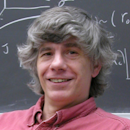Directed Aging and Nature’s Greedy Algorithms
- Speaker
-
 Sidney Nagel, Ph.D.Stein-Freiler Distinguished Service Professor in Physics, University of Chicago
Sidney Nagel, Ph.D.Stein-Freiler Distinguished Service Professor in Physics, University of Chicago
Presidential Lectures are free public colloquia centered on four main themes: Biology, Physics, Mathematics and Computer Science, and Neuroscience and Autism Science. These curated, high-level scientific talks feature leading scientists and mathematicians and are intended to foster discourse and drive discovery among the broader NYC-area research community. We invite those interested in the topic to join us for this weekly lecture series.
By clicking to watch this video, you agree to our privacy policy.
Scientists are customarily taught to understand solid materials by treating them as ideal crystals. This approach, however, becomes untenable in an intrinsically disordered material such as a glass: A crystal is an abysmal starting point for understanding the rigidity or excitations of a glass with no obvious long-range order.
In this lecture, Sidney Nagel will discuss how physicists are working to understand glassy matter. He will explain jamming, an alternative starting point for describing solids where order, rather than disorder, is treated as a perturbation. He will then show how physicists have learned to exploit disorder to create solids with unique, varied, textured and tunable behavior including long-range interactions inspired by the allosteric behavior of proteins. Applying these techniques, however, requires computing the response of each bond between particles. Can such detailed computations be avoided? Because a material has a memory of the conditions under which it was prepared and subsequently aged, scientists can now direct aging using Nature’s (as distinct from a computer’s) so-called greedy algorithms to achieve novel kinds of mechanical functionality.
